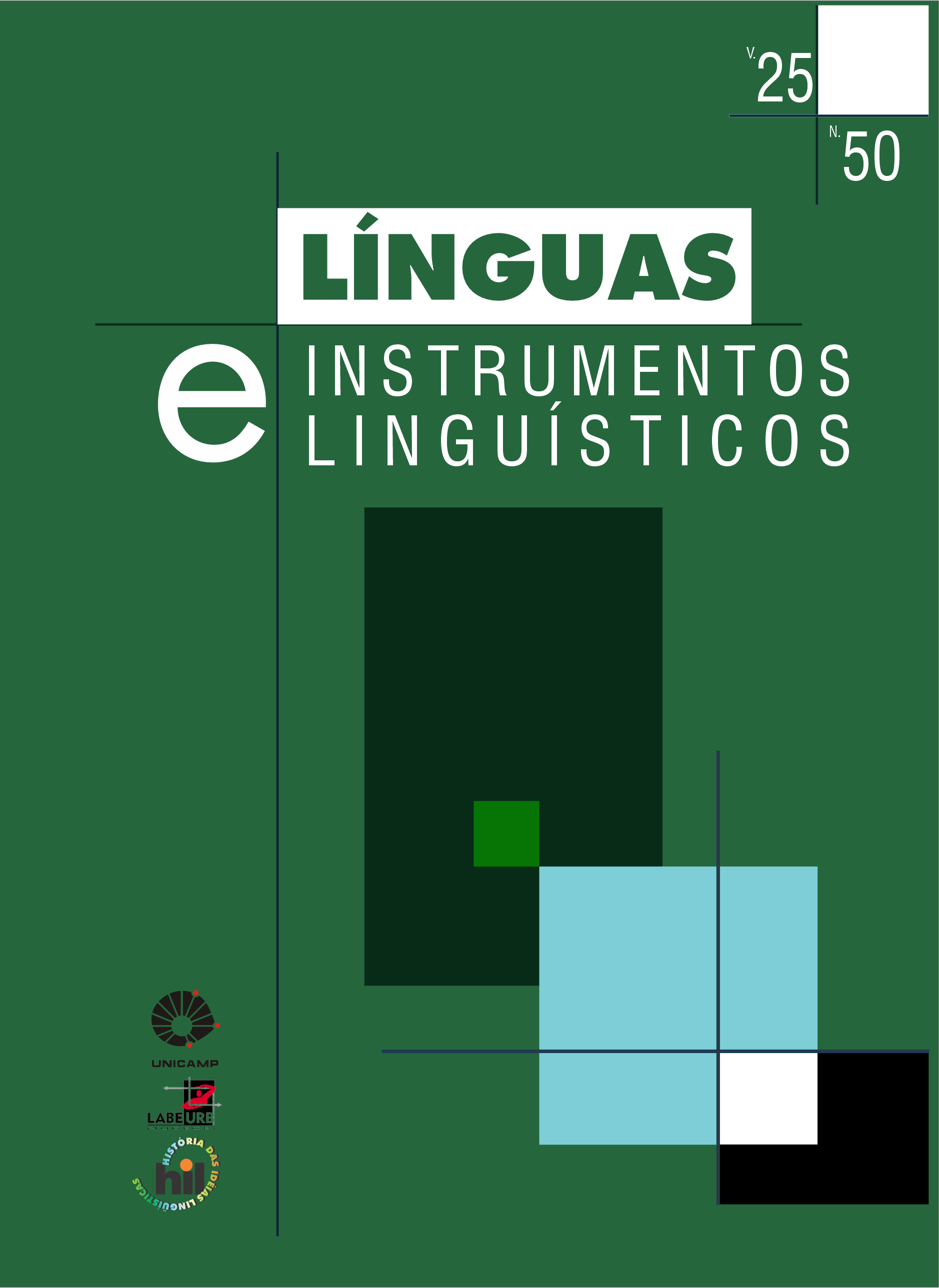Abstract
To discuss ways of discursivization of bodies in Salvador’s carnival advertisements, we intended to reflect on their meanings when crossed by the discourse of “baianidade.” Starting from the idea of body being a discursive object, we are interested in observing how the already-said staged “baianidade” come across the bodies plastered across chosen advertising campaigns, discursivizing them as diverse and placing them in symbiosis with the City. To this end, we shall turn to the theoretical framework of Pêcheux's Discourse Analysis, which provides the foundation to recognize historical remains related to the symbolic objects investigated (production conditions); to identify how the symbolic takes part in the process of formulating meanings (field of materialities); and to understand how, from the imaginary, the effects of meanings are regulated to disguise the contradictory material dimension of the interdiscursive process (subject positions).
References
CASTRO, Armando Alexandre. A música baiana e o mercado: a gestão da obra como estratégia de negócio. Tese. Doutorado em Administração. Salvador: Universidade Federal da Bahia, 2011.
COURTINE, Jean Jacques. Análise do discurso político: o discurso comunista endereçado aos cristãos. Trad. de Christina de Campos Velho Birck et al. São Carlos: EdUFSCar, 2009.
GRIGOLETTO, Evandra; PIVETTA, Graziela T. Baggio. Só ele é assim: uma análise da representação da mulher no discurso publicitário do Campari. In: Investigações v. 24, p. 35-61, Online. Disponível em: Só ele é assim: uma análise da representação da mulher no discurso publicitário do Campari | Grigoletto | Revista Investigações (ufpe.br) Acesso em 06 jul 2022.
LACAN, Jacques. Seminário, livro 11: os quatro conceitos fundamentais da psicanálise. Trad. M. D. Magno. 3 ed. Rio de Janeiro: Jorge Zahar. 2008.
LEITE, Rinaldo Cesar Nascimento. A baianidade das elites nas primeiras décadas republicanas: identidade regional e projeto politico”. IN: Negro, Antônio L. e Outros (Org.) Tecendo Histórias: Espaço, Política e Identidade. Salvador: EDUFBA, p. 181-198, 2009.
MARIANO, Agnes. A invenção da baianidade. São Paulo: Annablume, 2009.
MOURA, Milton, O oriente é aqui: o cortejo de referências fantásticas de outros mundos no Carnaval de Salvador. In: A larga barra da baía: essa província no contexto do mundo. Salvador: EDUFBA, p. 86-129. Online.
ORLANDI, Eni P. (2001) Tralhas e Troços: o Flagrante Urbano. In:
ORLANDI, Eni. (2004) Cidade dos sentidos. Campinas: Pontes, p. 9-24, 2001.
PÊCHEUX, Michel. Semântica e discurso: uma crítica à afirmação do óbvio. Trad. Eni Puccinelli Orlandi et al. 4. ed. Campinas, SP: Editora da Unicamp, 2009.
QUIJANO, Aníbal. Colonialidade do poder, Eurocentrismo e América Latina. In: LANDER, Edgardo (Org.). A colonialidade do saber: eurocentrismo e ciências sociais: perspectivas latino-americanas.. Buenos Aires: CLACSO, p. 117-142, 2005.

This work is licensed under a Creative Commons Attribution-NonCommercial-ShareAlike 4.0 International License.
Copyright (c) 2022 Línguas e Instrumentos Línguísticos


